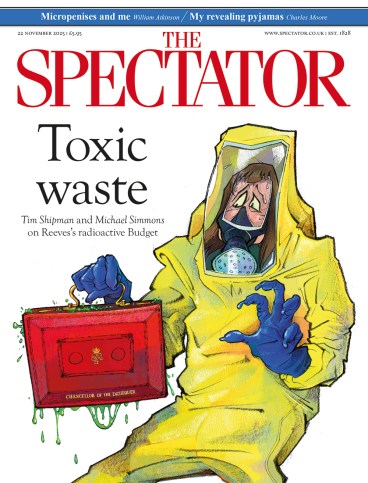
Defeat, political implosion and civil war – those are the jeopardies that Volodymyr Zelensky faces as Ukraine heads into the most difficult and probably the last winter of the war. Evermore effective Russian strikes against Ukraine’s energy and transport infrastructure are likely to plunge swaths of the country into cold and darkness. Russian troops continue to push forwards slowly and bloodily in Donbas and, more dangerously, on the southern flank in Zaporizhzhia. Desertions from the Ukrainian army are up four times since last year and the number of deserters now matches the number of active fighters. The US has turned off the money taps and Europe struggles to produce the cash Kyiv needs to keep its war effort going.
But the most damaging crisis of all is a $100 million war profiteering scandal that has implicated many of Zelensky’s closest political allies and personal business partners and rocked faith in the government to the core. ‘It’s difficult to overstate the popular anger in Ukraine over this case,’ reports Jimmy Rushton, a Kyiv-based security analyst. ‘While all of the country suffers blackouts, members of the political elite stand charged with stalling efforts to harden energy infrastructure because they weren’t receiving big enough bribes.’
Zelensky’s public trust has fallen to under 20 per cent, down 40 per cent since the beginning of the year, claims the opposition parliamentarian Yaroslav Zhelezniak. And while the Ukrainian President voiced support for the National Anti Corruption Bureau (Nabu) investigation, so far no senior figures have been arrested. Timur Mindich, co-founder of Zelensky’s Kvartal-95 television production company and the man at the centre of the scandal, fled Ukraine just hours before Nabu raided his flat, leaving behind packs of cash and a golden toilet. Clearly tipped off, Mindich is now reportedly in Israel, which does not extradite its citizens. Herman Halushchenko, the energy minister also named as a suspect by Nabu, has been dismissed but not charged. He has said he will defend himself and ‘prove his position’.
What makes this scandal into a political crisis is that since the summer Zelensky has done everything in his power to shut down Nabu’s investigation. After Nabu surveillance equipment was found in Mindich’s apartment, Ukraine’s SBU security service and the prosecutor-general’s office – both headed by Zelensky loyalists – began aggressive investigations into top Nabu officers, jailing its lead detective, Ruslan Magamedrasulov, and his father. In July Zelensky hurriedly pushed through the now-infamous Law 12414 which sought to bring Nabu and its judicial arm Sapo under government control. Ukrainian civil society was horrified and major street protests against Law 12414, the first of the war, rocked Kyiv. Ukraine’s western backers, which had set up Nabu and Sapo back in 2014, were also appalled. Zelensky was forced to scrap the law – and Nabu’s investigations continued.
‘I wish the United States had as robust and effective anti-corruption institutions and organisations as Ukraine,’ Michael McFaul, the former US ambassador to Russia, tweeted this week. The fact that Ukraine is now in the middle of a major corruption scandal ‘should be understood not as a sign of weakness, but as evidence that Ukraine has remained a functioning democracy’, argues Olena Tregub of Ukraine’s Anti-Corruption Commission (a separate body to Nabu). ‘This investigation became possible only because Ukrainian citizens mobilised this summer to defend the independence of the anti-corruption institutions.’ But it was Zelensky who tried to shut down Nabu’s independence, and the people who stood against him.
The scandal has already damaged Ukraine’s international standing. ‘I would not want the money of Italian workers and pensioners to be used to fuel further corruption,’ said Italy’s deputy prime minister Matteo Salvini (to which defence minister Guido Crosetto wittily reposted that ‘the Americans and the English when they landed in Sicily [in 1943] did not judge Italy for the presence of the mafia’.) But even the Polish Prime Minister Donald Tusk, a staunch ally of Kyiv, warned that ‘enthusiasm for supporting Ukraine has weakened in Poland and abroad… the damage is done and the cost will be high’. Tolerating corruption could ‘ultimately cost you the war’, he added.
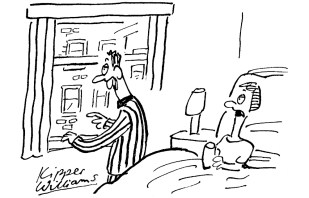
The emerging details of the case are ugly. The core of Nabu’s case is that Mindich and his associates allegedly skimmed off 15 per cent from contracts to build air-raid defences around the critical infrastructure of Energo-atom, Ukraine’s nuclear energy body. According to an investigation by Euromaidan Press, while 60 of the state-owned electricity utility Ukrenergo’s assets were protected with highly effective concrete defences by September last year, the same work at Energoatom was never carried out, leaving them defenceless against Russian attacks.
Next on Nabu’s list is military procurement. ‘Corruption is not a problem of the system – corruption is the system,’ says Ben Aris of BNE, a Berlin-based regional analyst. ‘In a country without a working judiciary or property rights, power is the ability to give or take away cushy jobs where deputies can skim off the top.’
It is not yet clear whether Zelensky himself appears on the 1,000-plus hours of audio evidence of conversations between Mindich and other accused officials, and the President has not been accused of any wrongdoing. But Zelensky’s right-hand man and chief of staff Andriy Yermak – codenamed ‘Ali Baba’ by Nabu – is said to feature. Yermak has denied these allegations.
Mindich fled Ukraine just hours before his flat was raided, leaving packs of cash and a golden toilet
The gory details of Nabu’s investigation are less important than the potential political fallout. Ukraine’s traditionally turbulent domestic politics have been largely silenced by the war, with former enemies uniting behind Zelensky and forbearing from criticising him openly. But as Zelensky’s credibility dwindles and his political grip weakens, that truce is unravelling. The stage is being set for a tussle for power that could tip into political chaos.
Zelensky is six and a half years into a five-year term, but insists that Ukraine’s constitution bans national elections in wartime. Leading the polls to replace him is the former army chief Valeriy Zaluzhny, sacked by Zelensky last year and sent into political exile as ambassador to London. But so far, Zaluzhny has remained resolutely silent on his political future.
The same cannot be said for Zelensky’s most dangerous opponents, Ukraine’s ultranationalists. ‘Corrupt officials are enemies and traitors – if you steal from the nation during a war you deserve liquidation,’ stormed Dmytro Yarosh, the former leader of Right Sector and a nationalist firebrand who threatened to hang Zelensky in 2019 if he dared to make concessions to Moscow. As long as top officials are not jailed, ‘all statements about finding and punishing culprits look like ordinary populism’, tweeted Bohdan Krotevych, former chief of staff of the Azov battalion, once a volunteer nationalist unit that has grown into a major force inside the regular Ukrainian army. ‘The absence of real changes in the Office of the President and the General Staff directly threatens the state’s sovereignty. Either you save your pro-Russian corrupt friends, or you save the state – there’s no third option.’ According to Krotevych, if the President does not make hard decisions about punishing ‘traitors’ then the people must do so themselves. ‘If the question is about the state’s existence, and the [presidency] doesn’t work – then the people have every right to take responsibility upon themselves.’ That sounds scarily like the justification for a military coup. And as Ukraine’s most heavily armed, well-organised, politically vocal and most radically anti-Zelensky military formation, Azov is fully capable of seizing the role of kingmaker in the event of a political collapse.
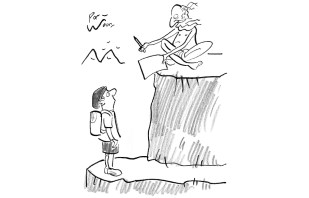
The most immediate danger for Ukraine, of course, still comes from Russia. There are disturbing signs that after three years of trying, Russian attacks are becoming dangerously effective at evading Ukraine’s air defences and destroying key electricity and gas infrastructure. Drone and missile swarms lasting for hours recently succeeded in blacking out half of Kyiv for a day, and region-wide power cuts are becoming longer. Most chillingly, many of Ukraine’s biggest 750kV electric interchanges which connect regional power grids have not yet been hit. It’s likely that the Kremlin is keeping a major attack in its back pocket for use in the depths of winter. If Ukraine’s citywide central heating systems – a Soviet legacy – are hit during hard frosts, the pipes will freeze and crack, rendering whole city blocks uninhabitable until spring. Having failed to break Ukrainians’ spirit with bombardments, Vladimir Putin’s plan seems to be to use cold and darkness to drive them from their homes.
In this winter of suffering, Ukraine’s people will need inspiring leadership more than ever before. But Zelensky’s tragedy is that the cynical thieving of his friends has robbed him of much of his once-colossal moral authority.


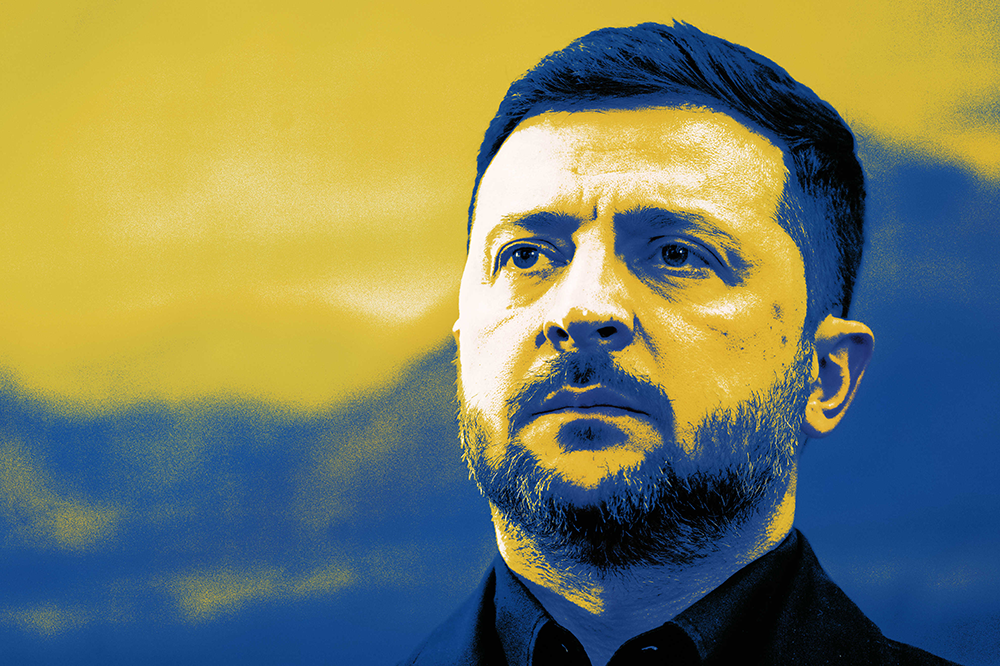

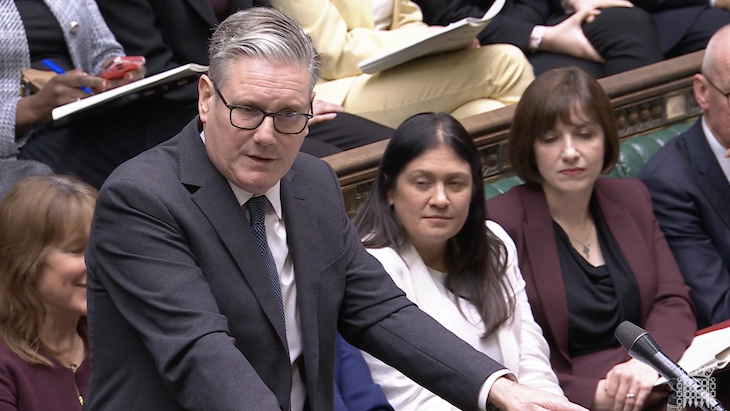




Comments